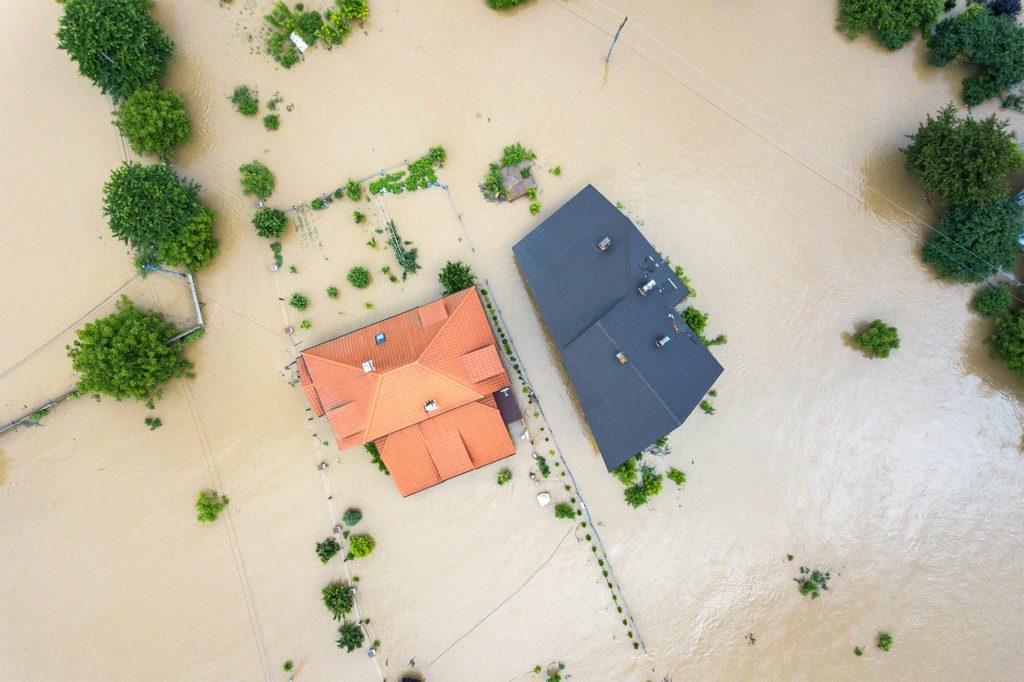Experts in 2011 anticipated that property prices in flood-affected areas in Brisbane would drop due to the catastrophic flooding events. However, 10 years later, the outlook is a bit different.
As it stands right now, Brisbane’s riverside properties and communities continue to thrive.
This article provides some valuable tips if you are considering purchasing a house in a flood zone.
RiskWise Property Research showed that some suburbs impacted by the 2011 floods outperformed those in the rest of the market. Some homeowners saw housing prices rise by as much as 52 percent.
These significant gains cause several investors to wonder whether or not to buy property in Brisbane’s flood zones.

Does Flooding Affect My Conveyancing Contract?
Let’s answer this question with an example.
Let’s say before the completion of the contract, the property is damaged. It becomes uninhabitable. In this case, the buyer may be able to terminate the contract under the Property Law Act. Another outcome may be that the contract is suspended until the delay event has passed.
Will the Delay Affect the Cost of Brisbane Conveyancing Services?
The price of the conveyancing Brisbane services may increase depending on any additional time spent by lawyers in discussing the issues faced and reaching a satisfactory solution. You can find out the cost of the conveying fee and all other fees required for the real estate transfer by filling in the free Instant Quote.
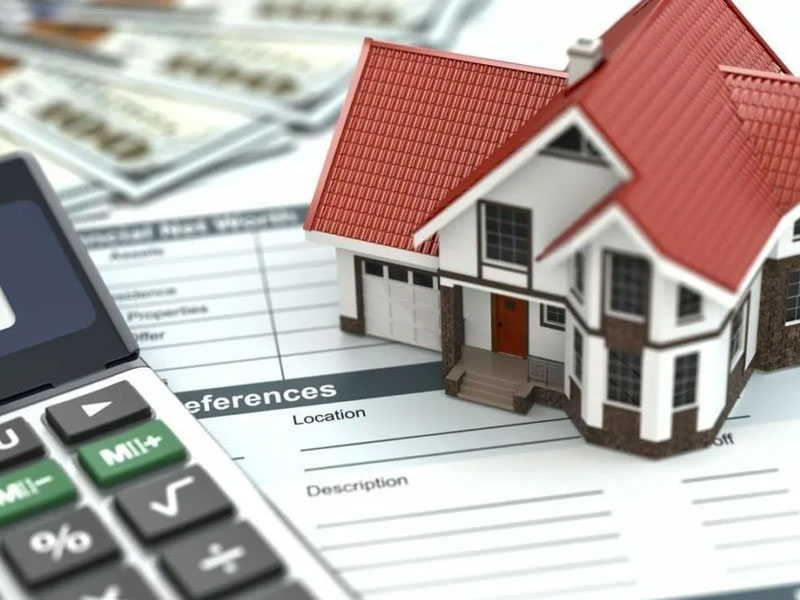
Does Water Damage Decrease Home Value?
Suppose flooding has affected the quality of your walls, ceiling, foundation, or any other violation of the basic structure. Due to this, you can sell a house with water damage, but it will likely affect your selling price. But, if repaired, previous damage will not necessarily affect the property value. Suppose you are having trouble selling a property for what it’s worth due to prior damage you have already repaired. In that case, you can consult with a conveyancing lawyer to learn the steps for resolving the issue.
Here is a list of damages that are likely to affect the price of a home:
- Warped ceilings and walls: Warped ceilings and walls indicate water damage. Not only are they visually unappealing, but they also let potential buyers know there are water issues that may be expensive to repair once they purchase a home.
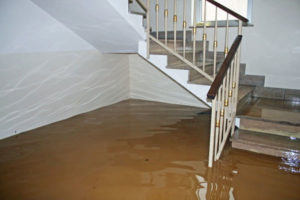
- Water-soaked damaged carpeting and flooring: Damp carpeting tells potential home buyers that there are water or moisture issues inside the home. Buckled wood flooring can also decrease the value of a home. If you are selling a home and have water-damaged hardwood floors, you can repair them before the sale.
- Structural damage: When water damages a home, the home’s structure could have serious issues. If not addressed, these damages can significantly decrease the value of a home. New homeowners do not want to start off homeownership with expensive structural repairs to fix rotting wood, sagging beams, cracks in walls, and broken electrical fixtures.
- Foundation issues: Foundation issues are not always caused by water damage; however, they can be amplified with a basement flood. Water can get into small cracks in the foundation and erode it away.
- Mold: One of the biggest headaches caused by water damage is mold. Finding mold in a home is a red flag that there are more significant issues related to water. Mold growth can explode in homes with water damage and lead to other problems. Hiring a professional mold inspector and a mold remediation company for homeowners is highly recommended. A professional mold remediation company will use HEPA vacuums to treat and remediate the mold in the affected area.
How Do I Know If My Property Is in a Flood Zone in Australia?
The most straightforward way to check whether your house is in a flood zone or not is to get a FloodWise Property Report from the Brisbane City Council. This is a free and instantaneous service available online at this link.
Based on information from previous floods and flood studies using flood computer modeling, FloodWise also considers the risk of flooding from any nearby creeks, not just the Brisbane River.
As for the floods of 2022, Brisbane residents should regularly check the Council’s website for updates on potential flooding arising from the current severe weather event.
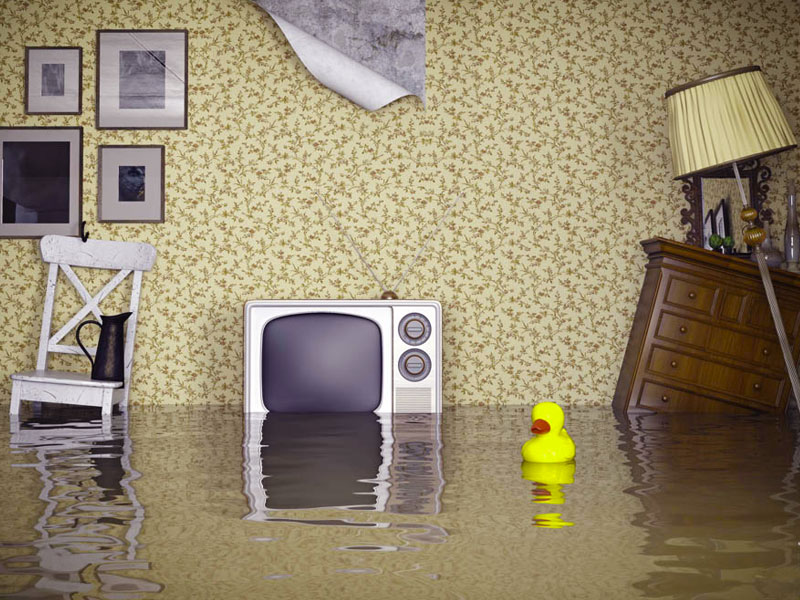
How to Check If the House Has Been Flooded?
When buying a house flood risk area, it is important to check if the house has previously flooded. The first step is to check if the property is in a flood zone. The second is to hire a special inspector who will check the house. While it is recommended to hire a professional, you can also check for flood damage on your own. If you are concerned about flooding and have not properly investigated this issue, then you should at the very least include a special condition in the contract which will enable you to terminate the contract if your search results regarding this issue proves adverse.
Floods can be devastating for homeowners. Oftentimes, they leave no surface untouched. When inspecting properties at risk of flooding for flood damage, the building examiner will concentrate their evaluation on the foundations and structural integrity of your home. They will conduct an exterior inspection of the potential property and look at the space under the floor for any signs of flood damage. Floods are notorious for weakening, shrinking, and warping joists, bearers, and framing, so you can be assured that your building inspector will pay particular attention to these areas.
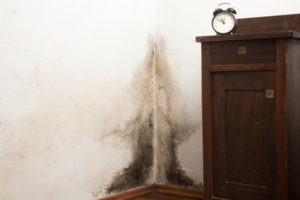
Floors will be examined carefully, looking for uneven floorboards, signs of weakness, and rotting. Ceilings and walls will be surveyed for water damage, mold, and peeling or bubbling paint. They will also be checked for the quality of the insulation and advise you if it has been flood-damaged.
Your roof will be thoroughly inspected for signs of damage from storms, including broken tiles and loose sheeting. Steps, fencing, driveways, and pathways will also be inspected.
Floods can also wreak havoc with electrical networks and plumbing, so be sure to have these thoroughly examined before handing over your money. This includes electrical conduits, leaky taps, toilets, and drainage.
When you choose a building inspector, it is essential to book one with an intimate knowledge of the area and experience with inspecting flood-affected homes.
Your building inspector should be checking your home against a comprehensive flood damage checklist, including examination of the following:
- house exterior
- house interior, including bathroom, laundry, and all wet areas
- steps, decking, verandas, and pergolas
- roof exterior and interior
- chimney
- garage
- the allotment
- under the house
- termite barrier

Is Flood Coverage Mandatory?
Home insurance providers may have no obligation or requirement to provide flood coverage for house insurance for flood risk areas.
Following the 2011 Queensland floods, the federal government put forward the idea of making flood coverage a mandatory part of insurance policies. It specified a new, standard definition of a ‘flood.’ According to the Australian Government, the definition of flood is:
“The covering of normally dry land by water that has escaped or been released from the normal confines of any lake, or any river, creek or other natural watercourse, whether or not altered or modified; or any reservoir, canal, or dam.”
Flood coverage was not made mandatory, so it’s not legally compulsory for insurers to include flood cover in their policies.
Many insurance companies now offer flood coverage policies as part of their homeowner policies. However, this additional coverage has been known to increase home insurance premiums in certain areas. Before committing to a particular insurance policy, you may want to consider how flood-prone your location is. This will help you determine if getting flood coverage as part of your policy is worth paying a potentially higher premium.
Can I Insure a Home from Flooding in a Flood Zone?
Suppose you are in or near a flood zone. In that case, you may have difficulty obtaining flood coverage, have to pay a surcharge (a higher premium), or pay a flood excess (an amount charged if you make a claim), depending on the perceived risk level. However, since providers may classify flood risk differently, we recommend comparing your options.
Completing a flood risk assessment will help you understand your home insurance premium options in different regions.
